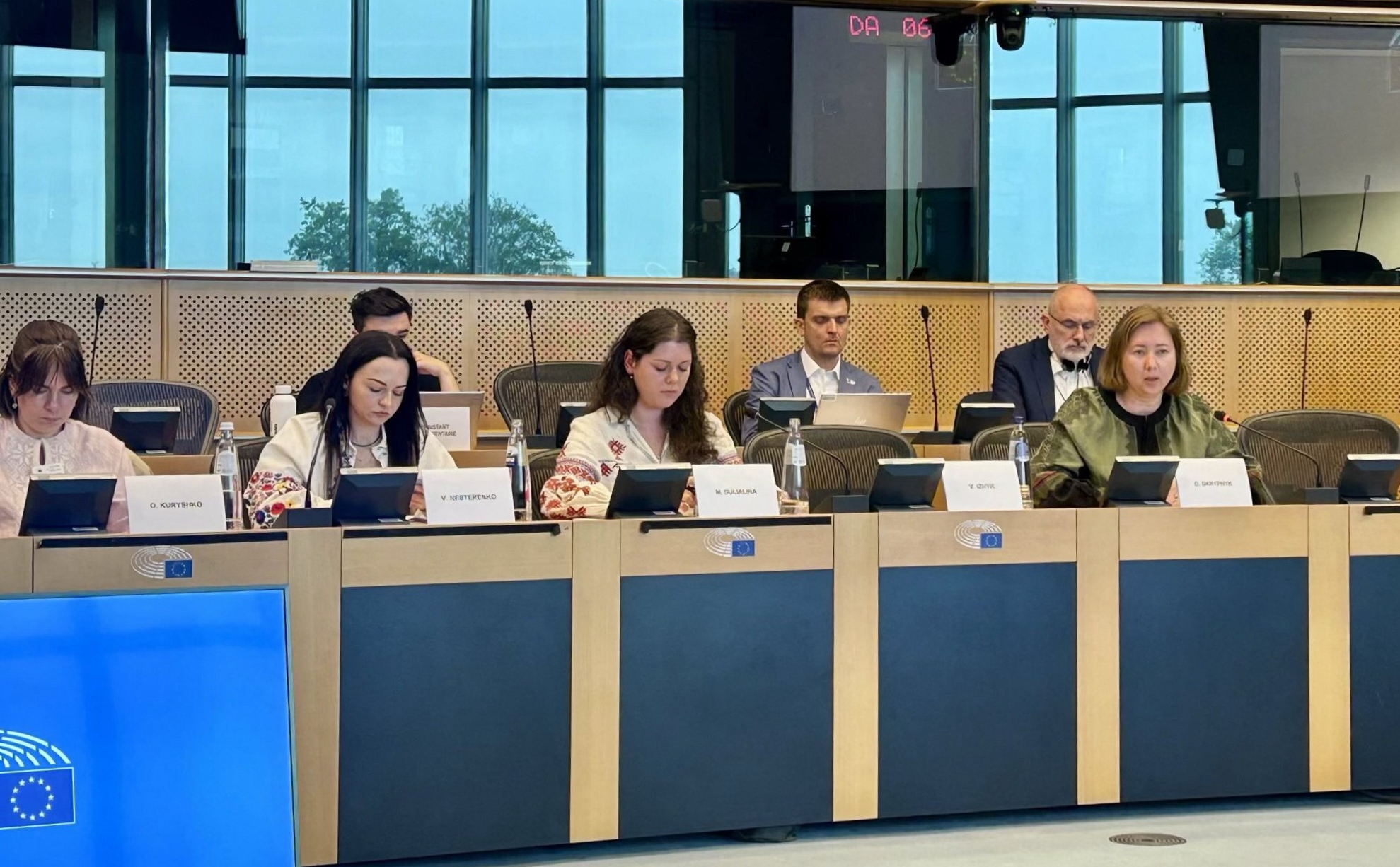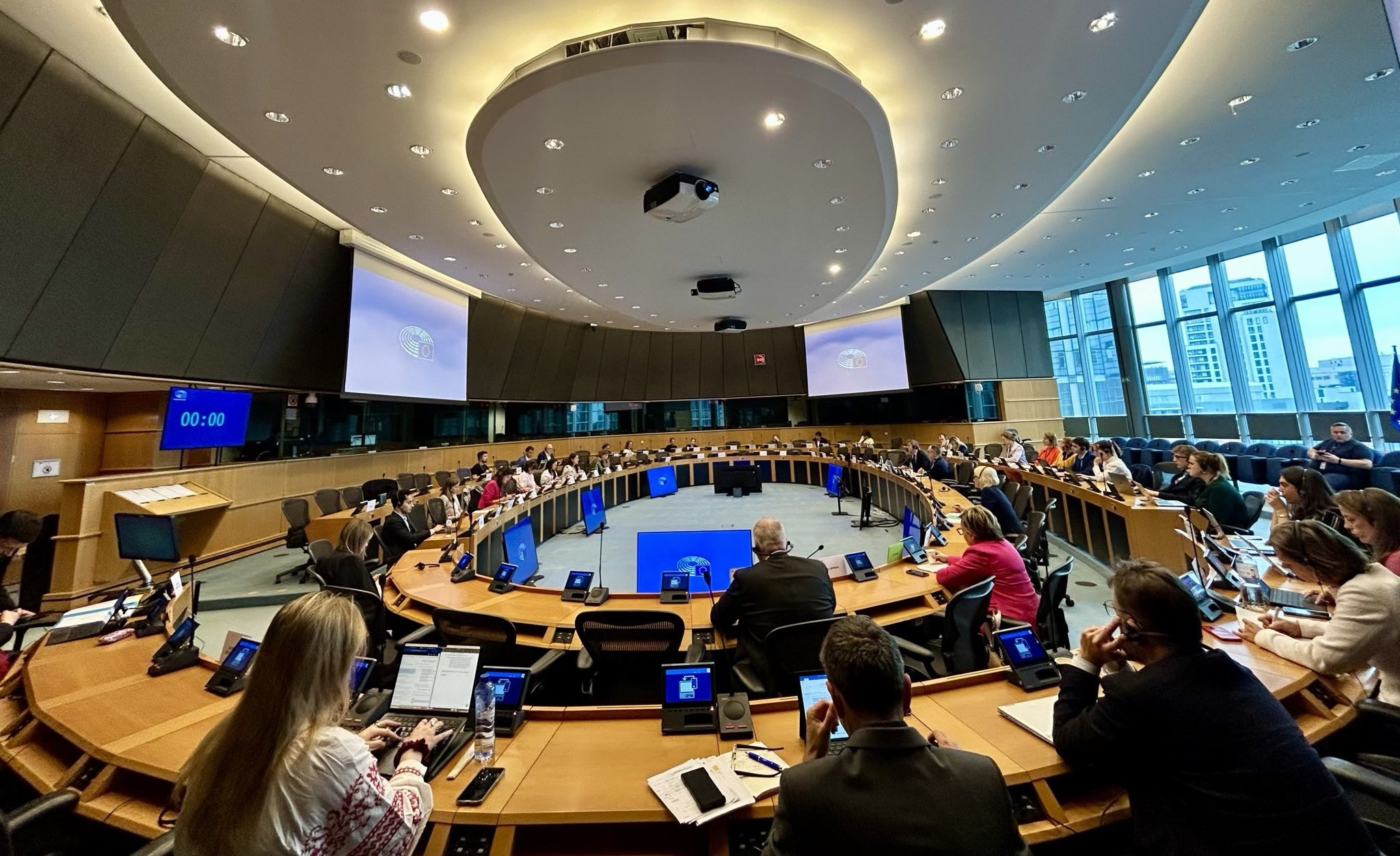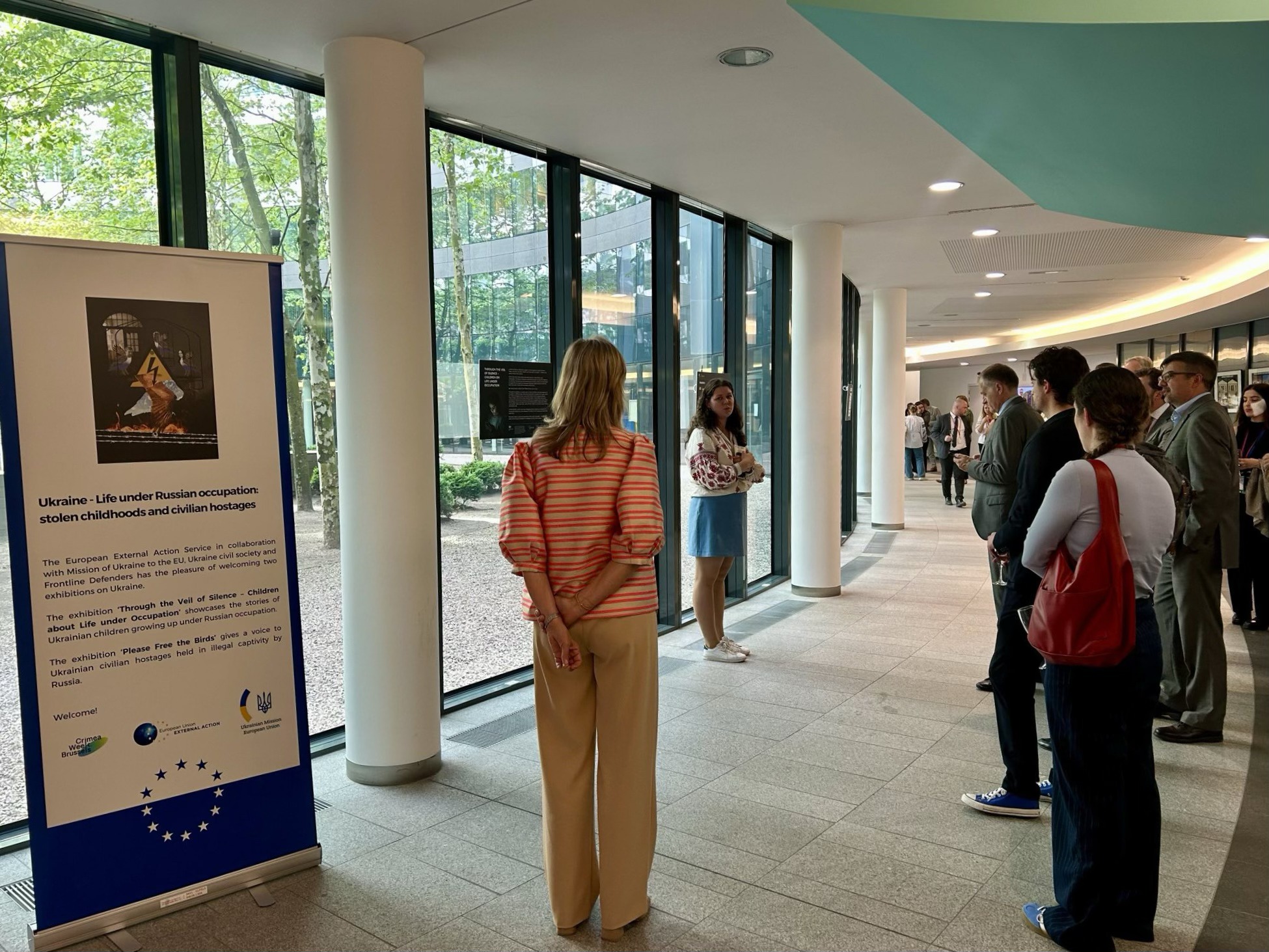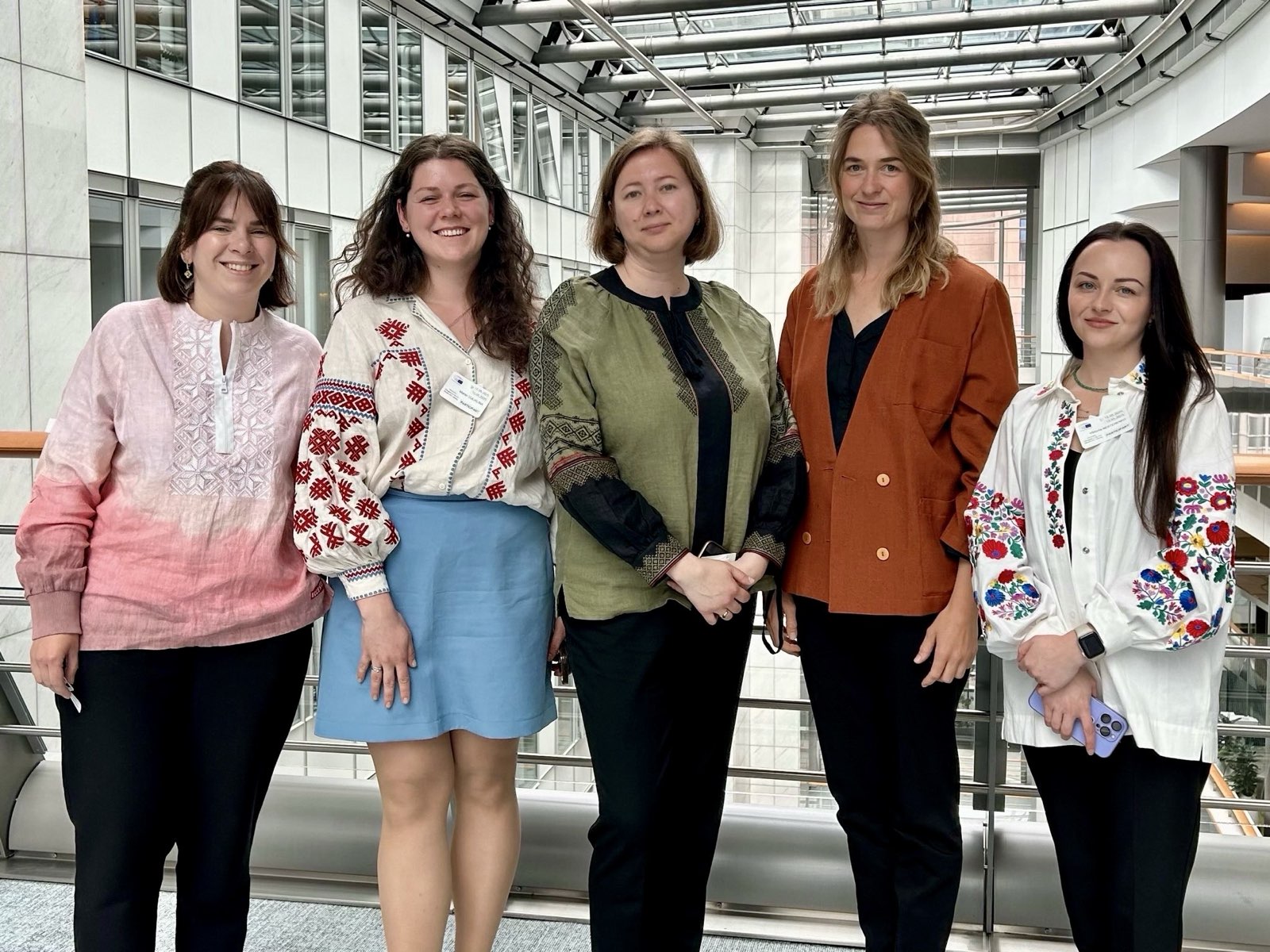The fourth day of Crimea Week in Brussels: speech at the European Parliament and exhibition at the European External Action Service
The fourth day of Crimea Week in Brussels began with a session at the European Parliament. Viktoriia Nesterenko, Project Manager of ZMINA, Permanent Representative of the President of Ukraine in the Autonomous Republic of Crimea Olha Kuryshko, Head of the Centre of civil education “Almenda” Mariia Sulialina, and Head of the Crimean Human Rights Group Olha Skrypnyk addressed the Members of the European Parliament.

Viktoriia Nesterenko spoke about systematic human rights violations that human rights defenders began to document on the peninsula immediately after its occupation in 2014, particularly against activists, journalists and the pro-Ukrainian population.
“As of today, there are more than 200 known Crimean political prisoners, 133 of whom are Crimean Tatars. Most of them were deported from their native Crimea to the territory of the Russian Federation,” Nesterenko noted.
She emphasised that ZMINA had also documented 25 cases of administrative and criminal prosecution of women. These stories are illustrative; they are amplified by Russian media and used as propaganda tools to intimidate residents of the occupied territories.

In addition, the exhibitions “Through the Veil of Silence – Children about Life under Occupation” and “Please Free the Birds” were opened at the European External Action Service. They were attended by Luc Devigne, EEAS Deputy Managing Director for Central Asia and Eastern Europe; Vsevolod Chentsov, Representative of Ukraine to the European Union; Sarah de Roure, representative of Front Line Defenders; and Mariia Sulialina, Head of the Centre of civil education “Almenda”.
The exhibition “Through the Veil of Silence – Children about Life under Occupation” documents the impact of the Russian occupation on over a million Ukrainian children. Their testimonies reveal the realities of life shaped by repression, forced militarisation and attempts to erase their Ukrainian identity.
“Children under occupation cannot speak for themselves because it is dangerous. But we must be their voice. We must do everything in our power to protect their identity and stop Russia. This is vital for Ukraine because they are our future generation. But it is also vital for Europe, because our joint actions now will determine whether these children will become the ones who develop democracy and make this world a better place, or whether Russia will succeed in turning them into ‘universal soldiers’ who will be ready to fight for Russia anywhere in the world,” Sulialina emphasised.

The second exhibition, “Please Free the Birds”, presented by the Centre for Civil Liberties, depicts the struggle of civilian hostages and their families through the contemporary visual art of artist Katia Syta. This project highlights the stories of families fighting for the release of their loved ones held captive in Russia.
“The main topic this week is, first and foremost, people, not land. This is not about abandoning territories or giving in to the aggressor, but about those whose rights are constantly being violated, who have been living under occupation for over 10 years and cannot freely express their opinions. That is why we must join the actions to support them and keep up the pressure on the Russian authorities to free all our people and Ukrainian Crimea,” concluded Viktoriia Nesterenko.

For reference: Crimea Week is a series of high-level discussions, cultural events, exhibitions, documentary film screenings and exchanges of expertise aimed at strengthening European engagement on the issue of Crimea, the Ukrainian peninsula that has been under Russian occupation since 2014. This initiative highlights the harsh reality of the residents of Crimea – including Crimean Tatars, human rights defenders and independent voices – who continue to demonstrate resilience despite systematic repression since the occupation of the peninsula in 2014. The event is organised by Ukrainian and international civil society in close cooperation with EU institutions, Permanent Representations and the Mission of Ukraine to the EU.
If you have found a spelling error, please, notify us by selecting that text and pressing Ctrl+Enter.















